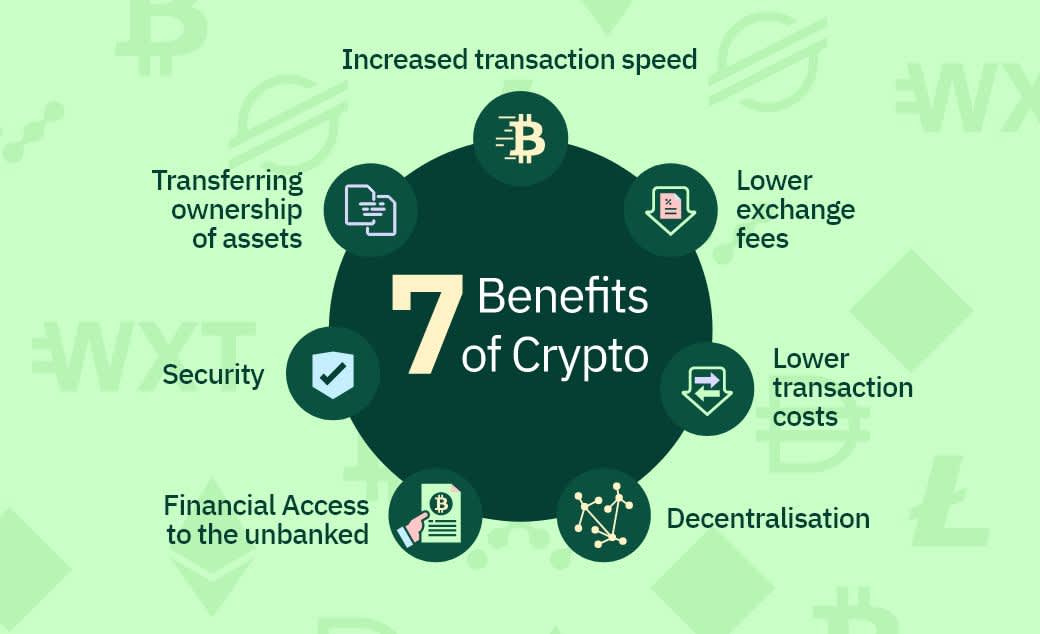Crypto has the potential to be a huge disruptor of the financial world. From businesses accepting it as payment to the full adoption of Bitcoin in El Salvador, it’s taking the world by storm. But what makes it beneficial, and how does it compare to traditional payment channels? Let’s take a look at the primary advantages of crypto.
- Decentralisation – Crypto is completely decentralised. This means transactions on the blockchain are simply carried out between the sender and receiver. There is no third-party involvement whatsoever, which means faster transactions and lower costs.
- Transaction speed – While traditional transaction speeds tend to take several working days to be approved, crypto transactions are approved in seconds. For example, Ripple (XRP) was reported to be among the tokens with the fastest transaction speeds – processing approximately 1,500 transactions per second with just 3-5 seconds needed for transaction approval.
- Low transaction fees – As well as quick transaction approval, crypto also offers lower transaction fees. Since blockchain transactions involve fewer middlemen, there are fewer people taking a cut.
- International payments – Traditional international payments can be complicated and expensive because of high exchange fees. Once again, crypto’s decentralisation comes into play, as it cuts out the middleman completely. As a result, this makes overseas transactions quick, simple and straightforward. El Salvador made Bitcoin (BTC) legal tender back in June with the aim to improve the lives of its citizens – many of whom live abroad and often send money home. Before BTC’s adoption, traditional financial services would charge for overseas transfers, which would also take several days to arrive. As crypto transactions are quick and cost so little, they offer a great way to send funds abroad.
- Financial access to the unbanked – As of 2017, there are around 1.7 billion people worldwide without a bank account. However, many have access to modern technology, such as smartphone devices. While traditional bank accounts require a home address or ID documents, these are not needed to set up a crypto wallet – all that’s needed is a digital device and internet connection. While many crypto exchange platforms do require a bank account or credit card to buy assets, there are alternative services through which it can be purchased without them. For instance, services like LocalBitcoins, where people can meet face-to-face and arrange an exchange with their smartphones. They can also buy BTC from physical ATM machines.
- Security – Crypto exchanges use rigorous security measures to ensure that your funds are secure and protected. Unlike traditional banking systems, crypto gives you complete anonymity and it doesn’t carry any personal information unless you add it yourself. While this privacy stops your activity from being monitored by banks and governments, it also significantly decreases the chances of identity theft. Plus, crypto cannot be counterfeited, which reduces the risk of fraud. Crypto transactions are inherently secure through cryptography, but it also uses encryption and hashing to protect your information from unauthorised parties.
With these benefits, it’s no surprise that many are turning to crypto as an alternative to traditional banking. As crypto continues to grow in popularity, we may soon see it be implemented in our everyday lives. Imagine paying for your next weekly shop or coffee with Bitcoin or Ether!

